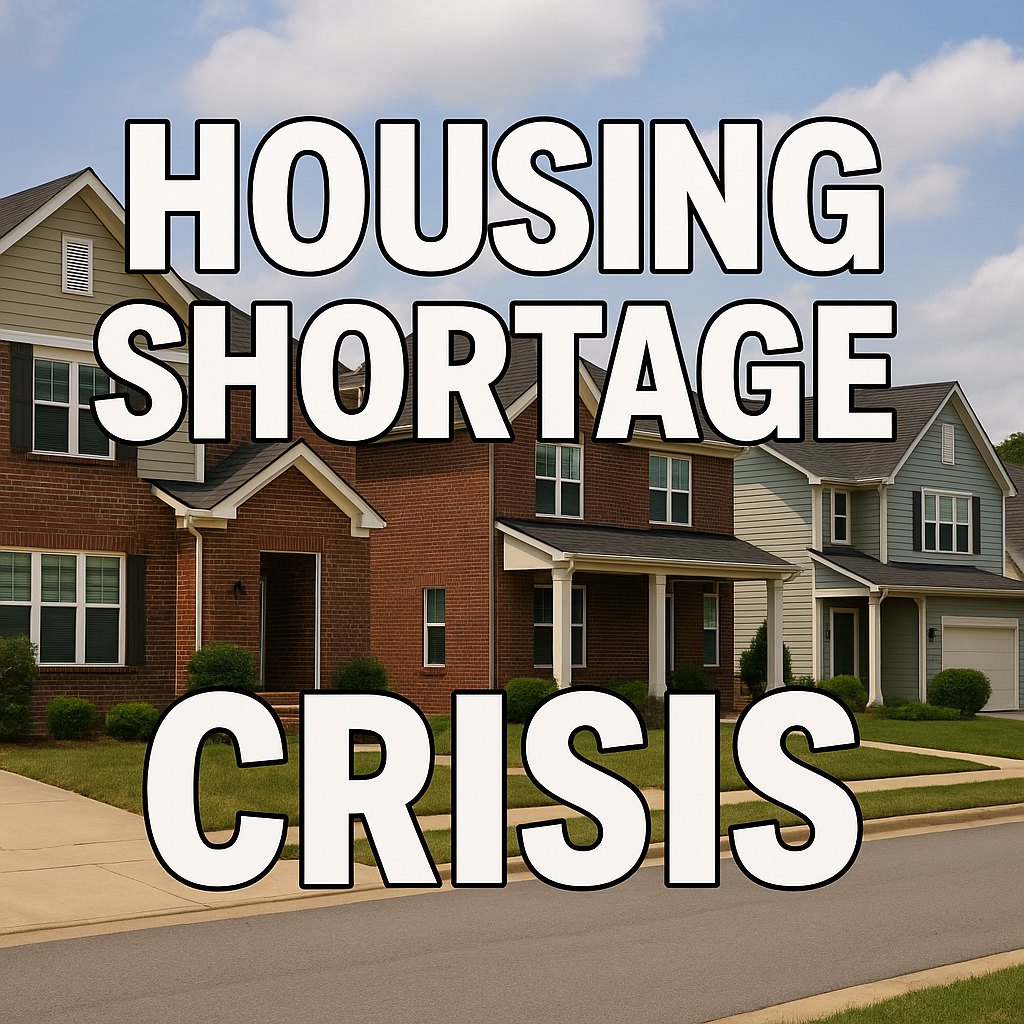

By Nicky Smith
June 23, 2025
Greensboro stands at a critical crossroads. With an anticipated influx of 15,000 to 25,000 new jobs on the horizon, our city has an unprecedented opportunity for growth and prosperity. Yet we face a fundamental challenge that threatens to derail this economic boom: our inability to build housing fast enough to accommodate the workers who will fill these positions.
The solution isn’t a mystery—it’s right in front of us, buried under layers of bureaucratic red tape and outdated processes that are choking off the very growth our community desperately needs.
While other cities streamline their approval processes and embrace innovative solutions, Greensboro’s Planning and Zoning Commission and city staff have become the primary bottleneck preventing us from achieving the 10,000 new homes our community requires. Current housing projects that should take months to approve are languishing for years in our approval process.
Consider this stark reality: a single-family housing community in the City of Greensboro can take over a year to get approved, more than a year before a single shovel hits the ground. Meanwhile, housing costs continue to skyrocket. Starter homes now cost $400,000, and we’re pushing working families out of our community before they even arrive.
Having spent decades in business, I understand what it takes to streamline operations and eliminate unnecessary delays. The solutions to our housing crisis aren’t theoretical—they’re being implemented successfully in communities across North Carolina and the Southeast.
Accelerated Permitting Timelines: We can implement “shot clock” provisions that require commercial and residential permitting decisions within 45 days, not the months or years currently required. When builders know they can get timely decisions, they can plan effectively and control costs.
Every month, we delay necessary reforms, adding thousands of dollars to the cost of each new home. Excessive regulations and bureaucratic delays have added an estimated $25,000 in regulatory costs to each new home since 2004. When a 50-unit project faces unnecessary requirements that add $500,000 to development costs, those costs get passed directly to homebuyers and renters.
Our current approach doesn’t protect anyone—it’s pricing out the very families we claim to want to help.
The most successful communities have learned to balance necessary oversight with efficient processes. They understand that good regulation serves the community, while excessive regulation serves only bureaucracy.
We must adopt the mindset that the government’s role is to facilitate quality development, not obstruct it. When developers and builders spend more time navigating red tape than actually building homes, something is fundamentally wrong with our system.
Imagine a Greensboro where:
This isn’t a pipe dream—it’s an achievable goal that requires leadership willing to challenge the status quo and demand better performance from our city systems.
We can continue with business as usual, watching potential residents flee to neighboring counties where housing is more available and affordable. Or we can embrace the reforms necessary to capture the economic opportunity before us.
With my business experience and understanding of efficient operations, I know how to identify bottlenecks, streamline processes, and hold systems accountable for results. The Planning and Zoning committee and city staff work for us—the citizens of Greensboro—not the other way around.
The path forward requires courage to challenge entrenched interests and the wisdom to implement proven solutions. We must update our approval processes, demand faster action from city staff on housing opportunities, and eliminate the government overreach that’s strangling our growth potential.
Greensboro’s future prosperity depends on our ability to house the workforce, which will drive our economic expansion. We have the opportunity, we have the demand, and we have the solutions. What we need now is the leadership to implement them.
The choice is clear: we can remain trapped by the limitations of yesterday’s thinking or build the Greensboro of tomorrow. I’m ready to lead that transformation.
Nicky Smith brings decades of business experience to the challenge of making government work efficiently for the people of Greensboro.
 If you believe in a future where Greensboro thrives through new housing, jobs, innovation, and accountability, please consider donating to Nicky’s campaign today. Even a $20 contribution can help us drive real change and keep our city moving forward.
If you believe in a future where Greensboro thrives through new housing, jobs, innovation, and accountability, please consider donating to Nicky’s campaign today. Even a $20 contribution can help us drive real change and keep our city moving forward.